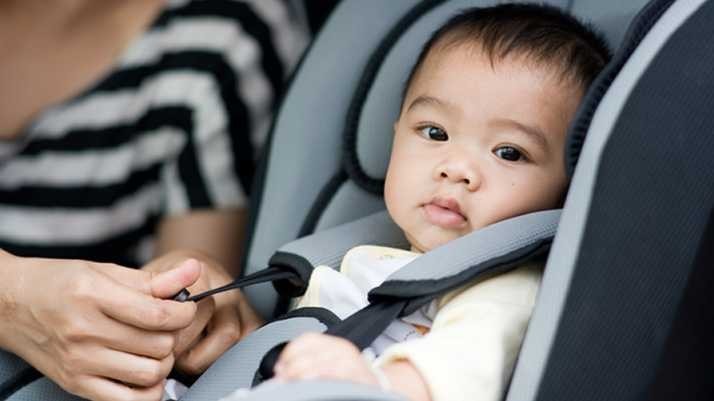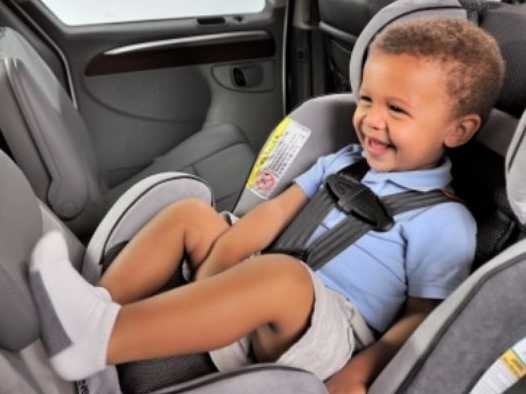People are Standing Up for Car Seat Safety
Did you know that safety experts are saying that when it comes to actually positioning a car seat within a vehicle, parents are actually endangering their child in many cases?

Everyone wants our kids to be safe in the car, but a recent study by General Motors Foundation and Safe Kids USA shows that 73% of car seats are not being used properly. In fact, the risk of fatalities among children in car seats could be reduced by 71% if parents can simply install the proper seat the correct way in the right place in the car. It's a problem in every state in the Union, including here in CA.
At Hustead's Collision Center - Oakland, we fix damaged cars, but we also want our customers to be safe when there on the road. And that definitely includes the most valuable cargo you can ever carry—your children.
The Stats are Frightening
The right type of seat at the right stage of any child’s growth is very important to overall car safety and many parents may not be aware of this. But, if you look at the numbers, they're definitely scary. Motor vehicle accidents are the leading cause of death in children ages 3 to 14. In fact, 500 children are injured and four kids die every day in cars, trucks, and SUVs across the U.S.
The hard truth is that babies and children need to ride in a car seat from the time they’re born until they are 7 or 8 years old. This means that up to four seats per child will need to be researched, bought, installed, and then carefully evaluated until the child is large enough to safely ride sitting in a seat with only a seatbelt.
So what's the right way of doing things and how are parents dropping the ball? The first problem is that most people don't take the time to install the seats properly.

Adhere to the Specifications and Follow the Instructions
One basic rule is that car seats have specific height and weight limits that are carefully devised for obvious reasons. Babies should be kept in rear-facing seats for as long as possible; sometimes until they are 3 years old, depending on their weight and height.
Thankfully, Safe Kids USA has some of the most important tips for parents, grandparents and caregivers to check out immediately before taking another trip to the mall:
1. Right Seat
Check the label on your car seat to make sure it’s appropriate for your child’s age, weight and height. Like milk, your car seat has an expiration date. Just double check the label on your car seat to make sure it is still safe.
2. Right Place
Tell your kids they are VIPs and we know all VIPs ride in the back seat, so keep all children in the back seat until they are 13.
3. Right Direction
You want to keep your child in a rear-facing car seat for as long as possible, usually until around age 2. When he or she outgrows the seat, move your child to a forward-facing car seat. Make sure to attach the top tether after you tighten and lock the seat belt or lower anchors.

4. Inch Test
Once your car seat is installed, give it a good shake at the base. Can you move it more than an inch side to side or front to back? A properly installed seat will not move more than an inch.
5. Pinch Test
Make sure the harness is tightly buckled and coming from the correct slots (check car seat manual). Now, with the chest clip placed at armpit level, pinch the strap at your child’s shoulder. If you are unable to pinch any excess webbing, you’re good to go.
If you can follow these basic guidelines, you'll have the right child seat in the right spot that fits properly. That way, your kids will be safe within your vehicle, so if a collision does occur, you'll be in the right place at the right time. At Hustead's Collision Center - Oakland, we want Oakland to be a safer city and that's why we share these tips whenever we can.
Sources: Safe Kids USA, General Motors Foundation and Consumer Report











Social